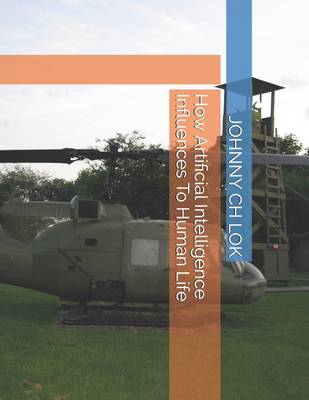
Bedankt voor het vertrouwen het afgelopen jaar! Om jou te bedanken bieden we GRATIS verzending (in België) aan op alles gedurende de hele maand januari.
- Afhalen na 1 uur in een winkel met voorraad
- Gratis thuislevering in België
- Ruim aanbod met 7 miljoen producten
Bedankt voor het vertrouwen het afgelopen jaar! Om jou te bedanken bieden we GRATIS verzending (in België) aan op alles gedurende de hele maand januari.
- Afhalen na 1 uur in een winkel met voorraad
- Gratis thuislevering in België
- Ruim aanbod met 7 miljoen producten
Zoeken
Omschrijving
The general-purpose software of the early period of (AI) were only able to solve simple tasks effectively and failed when which should be used in a wider range or an more difficult tasks. One of the sources of difficulty was that early software had very few or mix knowledge about the problems which handled, and activities successes by simply syntactic manipulation. Moreover, the other difficulty was that many problems that were tried to solve by the (AI) were untreatable. The early (AI) software whether trying step sequences based on the basic facts about the problem that should be solved, experimented with different combinations till which found a solution. From the end the 1960 year, developing the so-called expert systems were emphasized. These systems had ( sue-based) knowledge base about the field which handled. Till to the beginning of the 1970 year, ( Prolog) the logical programming language was born, which was built in the computation realization of a version of the resolution calculus. ( Prolog) is a remarkably prevalent tool in developing expert systems ( on medical, judiciary and other scopes), but natural language parsers were implemented in this language. Then, in 1981 s, the Japanese announced the fifth generation computer system project, a 10 years plan to build an intelligent computer system that use the ( Prolog) language as a machine code. Nowadays, (AI) can be applied any industries, such as car manufacturing industry can use (AI) technological machine-men manufacture car, instead of replacing human labors in factory. Even, in the future, using (AI) machine-men drivers can drive any private cars or public transportation tools, instead of replacing human drivers, e.g. bus, train, tram, ferry etc. Also in the future, machine-men can replace housewives to serve families to do housekeeping clean job, e.g. cleaning toilets, bathrooms, kitchens, even cooking functions at home. So (AI) machine-man can reduce housewives works at home. Moreover, (AI) machine man can take care old people, when who are living at homes or elder care centers.
Specificaties
Betrokkenen
- Auteur(s):
- Uitgeverij:
Inhoud
- Aantal bladzijden:
- 152
- Taal:
- Engels
- Reeks:
Eigenschappen
- Productcode (EAN):
- 9781693271434
- Verschijningsdatum:
- 15/09/2019
- Uitvoering:
- Paperback
- Formaat:
- Trade paperback (VS)
- Afmetingen:
- 216 mm x 280 mm
- Gewicht:
- 503 g

Alleen bij Standaard Boekhandel
+ 81 punten op je klantenkaart van Standaard Boekhandel
Beoordelingen
We publiceren alleen reviews die voldoen aan de voorwaarden voor reviews. Bekijk onze voorwaarden voor reviews.












